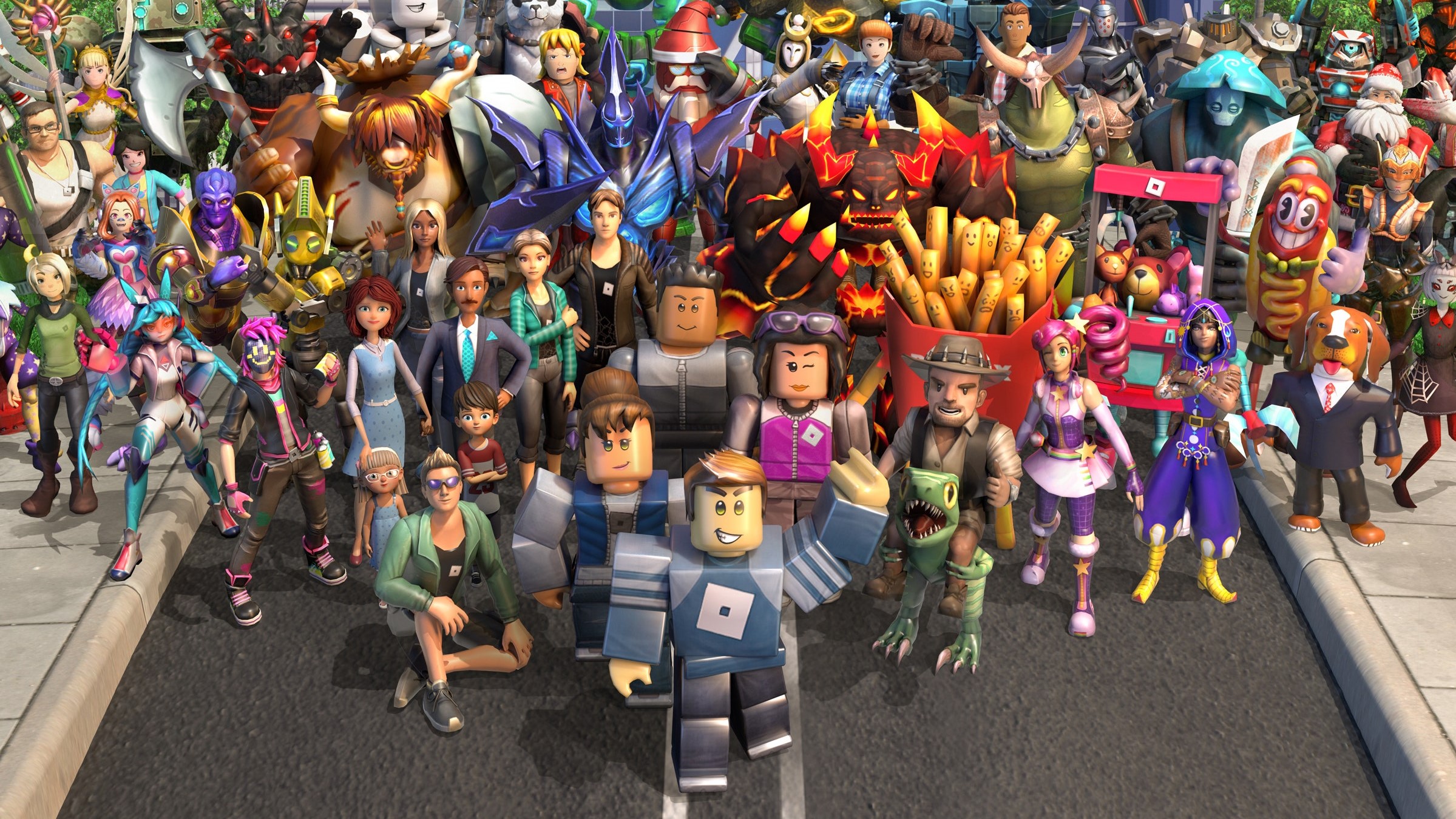With its kiddie audience rapidly growing up, Roblox is making a new category for 17+ games on the platform
Only users who've provided a photo ID and a selfie can create or take part in them.

Roblox Corporation has announced the creation of a new category of experiences, which is what it calls the games people create on the platform, for people aged 17 and older. "17 to 24 year-olds are the fastest-growing group on Roblox, and in 2022, people over 17 made up 38% of our daily active users," said Roblox in the announcement. "We’ve heard your feedback on wanting to be able to build experiences that feature more mature themes and storylines that appeal to older users".
Users wishing to create or take part in anything in this category will need to provide a selfie and a photo ID to Roblox. This means Roblox now has four categories of experience, starting at "All ages" ("infrequent mild violence and/or light unrealistic blood" allowed), then Ages 9+ ("mild violence, heavy unrealistic blood, and/or mild crude humor"), Ages 13+ ("moderate violence, light realistic blood, moderate crude humor, and/or unplayable gambling content") and now the Ages 17+ band. These may contain "intense violence, heavy realistic blood, moderate crude humor, romantic themes, unplayable gambling content and/or the presence of alcohol".
You may notice a few things missing there and yep, Roblox is saying a firm no-no to certain mature content. "Strong language" is amazingly enough one of them, to which all I can say is good luck with that, though Roblox adds "we are exploring ways to enable it in the right context" in future. Enable it?
More understandable is a blanket ban on "sexual content or nudity", and "depictions of drugs and tobacco". It does seem a bit weird that Roblox is allowing alcohol but not tobacco, when both are legal drugs with the same age restriction of 21+ (in the USA, anyway), but I guess they just don't want Big Tobacco steaming in to get creators making the Marlboro Ranch or something.
It all gets even weirder as it gets more detailed. Roblox has some suggestions on how to depict intense violence, for example, which would be "avatars carrying realistic weapons and fighting with vivid animations and audio effects like gunshots and screams". Heck why not "combine multiple realistic blood assets" on top of that?
Most amusingly, assets that explicitly depict alcohol remain prohibited. You can't make and upload a bottle that resembles a recognisable brand like Smirnoff vodka or Jack Daniels' sub-par whiskey. No problem says Roblox, no problem at all, because we allow red plastic cups. "To depict alcohol consumption," it suggests "creators can combine these assets within animations in a club scene".
Finally, Roblox has decided that rather than try to manage simulated gambling on its platform, it's just gonna ban it. "By September 18th, 90 days from today, all experiences that include simulated gambling content will need to be updated to comply with our new guidelines or will be subject to moderation consequences". Though let's not throw the baby out with the bathwater: "paid random item generators and lootboxes will still be permitted".
Keep up to date with the most important stories and the best deals, as picked by the PC Gamer team.
Roblox is now almost incomprehensibly popular: if its daily active users were a country, it would be bigger than Canada. While it first released in 2006, the platform's explosive growth began in the mid-2010s and, as it's grown, there's been increasing focus on its younger userbase and frequent criticism of inappropriate content as well as censures from regulators. 38% of its playerbase now being between the ages of 17-24 is way higher than I'dve thought before today's announcement, and explains why Roblox feels it has to make this move. That's the thing about children, though: they do grow up. Time for Roblox to try the same trick.
Roblox codes: Cross-game freebies
Dress to Impress codes: Get fast fashion
Blue Lock Rivals codes: Gear for the pitch
Blox Fruits codes: Double XP and free stats
Fisch codes: Bring the best bait
Arise Crossover codes: Beat 'em up gear

Rich is a games journalist with 15 years' experience, beginning his career on Edge magazine before working for a wide range of outlets, including Ars Technica, Eurogamer, GamesRadar+, Gamespot, the Guardian, IGN, the New Statesman, Polygon, and Vice. He was the editor of Kotaku UK, the UK arm of Kotaku, for three years before joining PC Gamer. He is the author of a Brief History of Video Games, a full history of the medium, which the Midwest Book Review described as "[a] must-read for serious minded game historians and curious video game connoisseurs alike."


